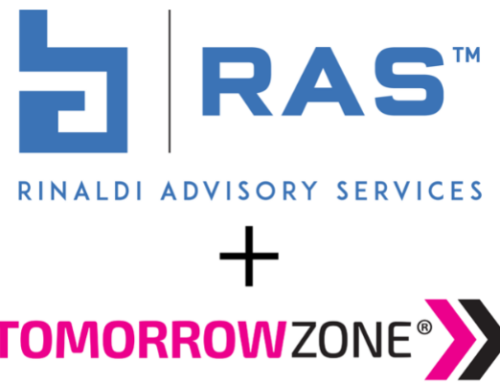
In the rapidly evolving landscape of technology and innovation, one of the most pressing topics for business and technology leaders is the ethical considerations for AI adoption. With the equipment finance industry undergoing significant changes and increasing regulation, ensuring responsible and ethical AI integration is paramount. In our livestream for Monitor, “Embracing AI as a Catalyst for Unlocking Your Potential,” industry thought leaders Deborah Reuben, Founder and CEO of TomorrowZone®, Tina Cartwright, SVP, Transformation Strategic Executive at US Bank, and Camtu Vo, Manager of Product Development for DLL, delved into this crucial topic, offering valuable insights and guidance for those embarking on the AI journey.
Quality Data, Ethical AI
Tina highlighted the pivotal role of data quality in the ethical use of AI. She emphasized that the quality of AI is intricately tied to the quality of the data that feeds into it. The ethical aspect arises when we consider that data itself can be biased, introducing potential bias into AI models and decisions. In this light, businesses must be extremely mindful of the data sources they employ in AI modeling. As Tina aptly noted, regulators are observing these developments closely, but formalized global guardrails are yet to be established. It’s the responsibility of businesses to set their own boundaries and guidelines for ethical AI adoption.
Acceptability and Collaboration
Camtu brought up a fundamental question: What is acceptable when it comes to AI adoption? She pointed out that acceptability can vary greatly among individuals and companies, encompassing shades of black, white, and gray. Companies must define their own parameters and align them with their business practices. She also stressed the importance of collaboration with a Legal Risk Privacy Compliance (LRPC) group. These experts are instrumental in shaping the rules and regulations governing AI adoption. Their involvement can shed light on issues that business-focused individuals may overlook. Cross-functional collaboration, involving diverse perspectives, is the key to crafting effective AI strategies.
Creating your Own AI Usage Guidelines
As an example, Jasper AI, a platform specializing in generative AI, released an open-source template for companies to use as a starting point for creating AI usage guidelines within their organizations. This template can serve as a valuable starting point in collaboration with your own legal counsel and technology leadership to set your own guardrails and policies for AI implementation. By including all relevant perspectives, organizations can develop comprehensive AI guidelines that ensure ethical and responsible usage.
In conclusion, as the equipment finance industry and other sectors continue to integrate AI into their operations, addressing ethical considerations is not merely a suggestion but a necessity. These insights underscore the complexity of this issue and the need for businesses to be proactive in setting their own ethical standards.
Quality data, acceptability, and cross-functional collaboration are at the heart of ethical AI adoption. In a world where AI is becoming increasingly integral to business processes, leaders must remember that the ultimate decisions are still made by people. Keeping the human touch while embracing innovation is the key to a responsible AI adoption journey.





